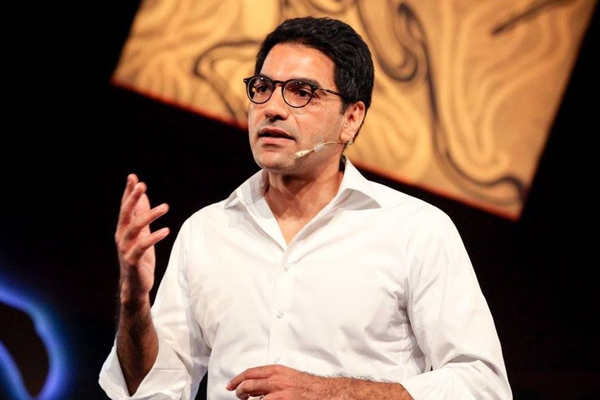Cross selling opportunities for services will remain a key focus area
Pranay Chulet, Founder & CEO of Quikr, affirms that the on-demand home services industry is witnessing a strong uptake across categories post-lockdown. However, he also admits that there is a need for drastic transformation measures in this fragmented sector. Training and hiring of service providers by/via the organized sector can help play a big role.

IBT: How has Quikr’s presence in the on-demand home services market evolved since inception? What would you identify as key achievements by your company so far, in terms of competitive advantage, quality of the overall offering and business numbers?
Pranay Chulet: Right from the get-go, Quikr revolutionized the digital classifieds business and we marked our leadership in a market where there exists none. Over the last five years we have gone deeper in some of the high demand and high growth categories such as Goods, Blue Collar Jobs, Real Estate, Auto along with QuikrEasy, our services category. Being an India-focused player, we could clearly see that was the right way to create a market leading horizontal, results of which are clear, specifically during these times.
With QuikrEasy, we went beyond buying and selling to organize the unorganized and connect customers with service providers through verified location-based services, reducing the time and effort taken to find technicians or experts in a given area.
Our goal is to make day-to-day life easier for our consumers by helping them save time, effort and money as they go about their chores or try to upgrade their lifestyles. In achieving this goal, we would have created a platform that benefits thousands of service providers (individuals and Small and Medium Businesses) across the country and would have also simultaneously helped build their business in a predictable and sustainable manner. We believe that QuikrEasy is uniquely positioned to deliver on this vision and build a viable and profitable business model by leveraging the vast user base and strong connect built by Quikr over the years.
There is also an added advantage of deriving natural synergies with the other verticals such as QuikrHomes, QuikrCars and Doorstep. Current unprecedented times have been tough on businesses, especially small and medium service providers that are now seeing much value coming from a broad-based platform like Quikr where they can list themselves and get leads too.
IBT: How is your business distributed geographically viz. urban centres vs tier 2, 3, 4 towns? How is this share expected to change in the coming 5-10 years and why? Similarly, how is it distributed by SEC class and who is your key target audience?
Pranay Chulet: The platform allows individual service providers to get listed and become discoverable to the young and urban population for home services. Based on the demand for different types of services, we see increasing traction in metros as well as non-metros. Overall our platform caters to a wide range of sectors, for e.g., luxury cars and high-end homes would have a different target audience than jobs. Goods and services are more need-based. In general, the share of monthly users on our platform is 50:50 for metros v/s non metros.
IBT: How has the on demand services market in India evolved in comparison to other parts of the world? What are the key takeaways in terms of growth potential and business strategy, based on this benchmarking? Also, how has its growth been different from e-commerce in goods?
Pranay Chulet: The typical urban consumer has a wide range of needs from interior design to carpentry, from home cleaning to pest control, from computer repair to leaking taps and many other such daily needs. Home services are seeing increasing adoption among urban consumers. Given the paucity of time and the high level of stress in their everyday lives, these consumers are looking for convenient and reliable solutions to their daily household needs. In fact, studies show that Indian households spend Rs. 25k annually on home services.
Globally, the on-demand services market has leapfrogged in terms of its evolution as what was an entirely unorganized market earlier, is now, according to studies, poised to grow by US$ 1,500 bn during 2020-2024. For India specifically, some of the categories like Beauty, Plumber, Electrician, Pest control can benefit from the full stack model as long as the unit economics for those work in favour of businesses adopting it.
At Quikr, we see the natural cross-category advantage unique to us. Whether it is our goods vertical, QuikrBazaar or QuikrEasy, our verticals have turned us into India’s true horizontal leader.
IBT: What are the opportunities and challenges in delivering services via e-commerce in India (for the metroes and the hinterland)? To what extent have you been able to tackle these challenges, and what are the focus areas going forward?
Pranay Chulet: We verify service providers that we on-board in a non-full stack model, something that helps ensure the quality of delivery. Services, by its nature, is hard to standardize beyond a certain point, but we do our best to recommend the right service providers to our users. We are on-boarding more service providers in new markets (Tier 2 cities) and also adding new sub-categories. There is a need for drastic transformation measures in this fragmented sector – given the importance of services in our society, training and hiring of these service providers by/via the organized sector can help play a big role.
IBT: How is the COVID-19 pandemic and the subsequent lockdown affecting your business? How do you view the overall impact through this year and the recovery curve?
Pranay Chulet: While there was a lot of uncertainty in the industry when the world was first hit by COVID-19; with people learning to live with it, governments going in for gradual relaxation in lockdowns, classified marketplaces like Quikr are beginning to see positive signs of growth. In fact, QuikrEasy has been seeing an increase in the demand for services like appliances, internet broadband, inverter, and battery rentals since the lockdown as compared to pre-COVID months this year. This shows that the industry is bouncing back since the nation-wide lockdown.
IBT: What are the strategic expansion opportunities you envision in your portfolio of services, especially post-COVID? How are you changing your business model and approach to services post-COVID to sustain growth, overcome competition and meet customer expectations and concerns?
Pranay Chulet: QuikrEasy is an on-demand home services platform catering to 200-plus service requirements from pest control to appliance repair to interior designing. The power of a diversified platform like Quikr is that while it attracts consumers in one area, they end up using Quikr in multiple adjacent areas as well.
The cross-selling opportunities work well for short-term and long-term needs of Quikr consumers, which will continue to be one of the key focus areas post-COVID. Whether it is finding new homes through QuikrHomes and Commonfloor, shifting to a new place using QuikrEasy’s packers & movers services, availing services for household necessities like plumbing, electrician, carpentry work, purchasing goods like dining sets, washing machines, refrigerators, bed sets, wardrobes, TVs, sofas from QuikrBazaar or finding maids through QuikrJobs, the platform helps consumers get a holistic experience.













Leave a comment